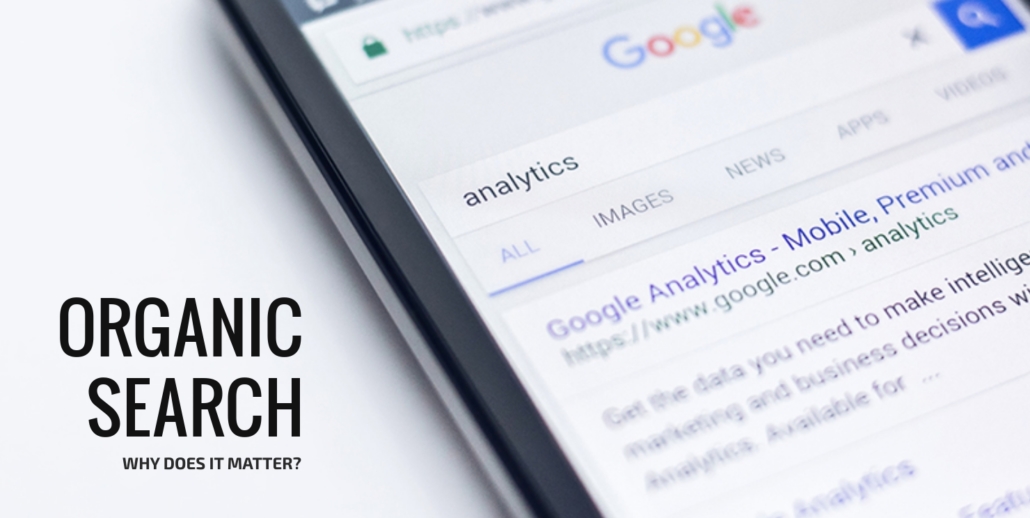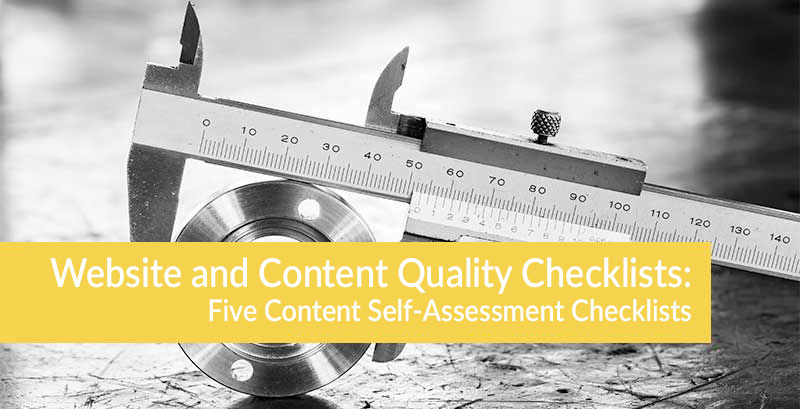Make sense of AI and how to use it to help you communicate and connect with people
Emails keep arriving in my inbox. These emails are rattling my brain. Why?
Because these emails have teeth clenching subject lines:
“What you need to know about AI to keep your job”
“If you’re not using AI to write – why bother even writing”
“Not using AI to do everything? Might as well give up now”
“The can’t miss, must do, AI webinar that will solve all your problems”
Since mid-January, this has been my inbox. Every. Single. Day. And they keep coming. Not going to lie – it’s getting hard to take. Like really hard.
Pretend you’re me. You live and breathe words. Your skill is learning about complicated subject matter, understanding the questions people have about this complicated stuff, and writing creative content that helps people learn, solve problems, and understand. You feel good about what you do. You’re good at it. In fact, some would even say, you’re awesome at writing helpful and informative words.
But now, you get emails all day long telling you about AI – and how AI can do what you do faster and better. Imagine how this feels. I’ll tell you how it feels.
It’s a dull ache. It starts in your chest. At first you can ignore it and go about your day. But slowly, this dull ache is always there and it creeps into your veins. It’s everywhere. Your head hurts, your fingers ache, your back is tight. You can’t sit at your desk and look at your monitor. You hurt. You don’t feel like yourself.
Slowly, but surely you realize you can’t type. Your fingers are stuck. You try forcing it. Nothing. You go for walks (because everyone says walks help you write). Nothing. You can feel yourself sliding away.
And the emails keep coming. Webinars. AI tools. Product updates. Prompt hacks and tips. All the things you must know and must do ASAP. Otherwise, well it’s over. That thing you do really well – it doesn’t matter anymore.
Like me, you embrace it. You read all the emails about ChatGPT. You sign up for waitlists and early access. You buy all the courses and books. You sign up for every single webinar. You tell yourself you’ve got this – you’re going to be the boss of AI.
And for a while it works. You feel in control. You figure out how to adjust and adapt to this new tool. You use it to help you. You write a blog about using ChatGPT…
But somewhere along the way, you stagger and wobble. All of a sudden, it feels like you can’t keep up. There’s too much information. It’s everywhere.
Inbox. Radio. Podcasts. Newspaper. Instagram. Everyone everywhere is talking about AI and how it’s the greatest thing since sliced bread. Dang. (I actually said a not-so-nice word in my head, but well, we don’t use bad words at Know Agency.) The wobble is now an outright crash.
So, what does this deep walk into my inner self have to do with you? Well, I’m guessing that maybe (just maybe) you might have had a similar wobble or feel close to one. Because, well, AI is coming for you, me, and my pet cat.
You may not be a writer like me. But you still need to make sure people are visiting your website, finding you in the search engine results pages, clicking your links, trusting you, and clicking buy.
So, like me, you need to understand the changing nature of how we create, find, and use words to get people believing in what you do.
This blog is my attempt at helping you cut through the noise and find your AI focus.
Microsoft Bing and Content
Just guessing that until a few weeks ago, you hadn’t thought about Microsoft Bing and your content. Your focus was on Google and keeping Google happy.
Same here. And then as I started using Bing Chat, I realized that I had a huge knowledge gap:
What are the Bing ranking factors?
Bing does have ranking factors. Microsoft explains these in their Bing Webmaster Guidelines. I’ve excerpted key sentences about how Bing ranks your content:
- Relevance: refers to how closely the content on the landing page matches the intent behind the search query. Bing presumes the user seeks high-quality, authoritative content unless the user clearly indicates an intent to find low-authority content.
- Quality and Credibility: determining the quality and credibility (QC) of a website includes evaluating the clarity of purpose of the site, its usability, and presentation. QC also consists of an evaluation of the page’s authoritativeness, which includes such factors as the author’s or site’s reputation, the level of discourse, the completeness of the content, and transparency of authorship.
- User Engagement: Bing asks questions like: Did users click through to search results for a given query, and if so, which results Did users spend time on these search results they clicked through or quickly return to Bing? Did the user adjust or reformulate their query?
- Freshness: generally, Bing prefers fresh content. The page that consistently provides up-to-date information is considered fresh.
- Location: in ranking results, Bing considers the user’s location (country and city), where the page is hosted, the language of the page, and the location of other visitors to the page.
- Page Load Time: faster page loads are always better, but webmasters should balance absolute page load speed with a positive, useful user experience.
These ranking factors should be familiar to you. The semantics are different, but this is very close to what Google is looking for. To double-check this, I asked Bing Chat about this:

The most helpful features with Bing Chat are the follow-up questions and source links. When you’re researching a new subject area or trying to see what others have written, Bing Chat is superior to using the Open AI version of ChatGPT.
Does Microsoft have expectations for health and wellness, financial, and educational brands? Does Bing have a Your Money Your Life (YMYL) category, like Google?
Not going to sugar coat this – this is a challenging question to answer. I searched in Google and in Bing – I could not find anything. So, then I asked Bing Chat about this…

I went down a question and answer rabbit hole with Bing Chat about this. Don’t do it. I got nowhere. It’s very likely Microsoft Bing does have expectations for YMYL-type websites, but who knows where this information is? If you know, email me.
Does Microsoft have anything similar to Google’s Quality Rater Guidelines?
Yes, Microsoft has the Human Relevance System (HRS) Judging Guidelines. Unlike Google, Microsoft does not make these guidelines easily accessible.
A few weeks ago, I used this prompt to learn about the HRS Judging Guidelines:

And this helped me learn a lot about the HRS Judging Guidelines. But I didn’t save the conversation in a way that really helps you out.
So, I reused this question and here is what I got back:

I tried again with a better prompt:

And then Bing shut me down. I could not type anything in the Ask Me Anything field.
I did find this Search Engine Land article from 2012. This is the most recent article on the HRS Judging Guidelines. Guess the search volume for this has been quite low.
The long story short is, the HRS Judging Guidelines are similar to Google’s Quality Rater Guidelines.
If you want the not-very-pretty screen capture of my successful Bing conversation about the HRS Judging Guidelines, email me. Warning – it’s not pretty but it’s useful.
What does this all mean? Downloads of Microsoft Edge are skyrocketing – so it is a good idea to test your content and see how it ranks in Bing.
Use Bing Chat to ask questions about your keywords and your content. Push a bit deeper and ask the AI to evaluate your content and give you a rating or tell you how to improve the SEO.
ChatGPT vs. Bing Chat
OpenAI is the research organization that created ChatGPT.
Bing Chat runs on OpenAI’s latest version of ChatGPT.
Here’s an example of how the same prompt surfaces information in each tool.
Prompt: You are content specialist at Know Agency. You need to write a 50 word introduction to a blog about using ChatGPT and Bing to write blog posts. The audience for your blog is new to ChatGPT and Bing and wants to learn more about using these tools to write blog posts. Please use the same tone and voice as Jane Phelps of Know Agency uses for her blogs.
ChatGPT-4 Response

Bing Chat Response

The interesting thing here is how both iterations of the same large language model respond to the same prompt differently.
This is key to helping you use AI to brainstorm content, find ideas, help you write social media posts, learn about topics, or get feedback on your content.
I did some deeper analysis on this, comparing responses from OpenAI’s ChatGPT and Bing’s ChatGPT. I tested with a few flavors of a base prompt, tweaking the details to see how each tool responded. This helped me learn a lot about writing prompts and the best use cases for each AI. If you want to read this document, email me.
Prompt Engineering Examples for Content Writers
Prompt engineering is the secret sauce that injects real value into using ChatGPT and Bing Chat. The more detailed, explicit, and specific your prompt is – the better your chance of getting a useful answer.
When it comes to reading, listening, and watching all the things about AI, the most valuable way to spend your time is learning how to write prompts.
Focusing on prompt engineering makes it easy for you to narrow your AI focus – helping you block out the AI noise and narrowing in on how it can support you in your role.
Ask ChatGPT to write as a subject matter expert
You are <insert job title>. You specialize in <insert details>. You work at <insert URL>. You need to write a <number> word long <insert content type>. This <insert content type> is for <insert audience description>. Use an active voice. <Insert additional instructions>

While this content is missing personality, it’s a good way to start writing and get your creative juices flowing.
Ask ChatGPT to Create Social Media Posts
This is a two-step prompt:
- Can you create <insert social media post type and number of posts> based on this content. <Insert text>.
- Thank you. Now can you rewrite these using the same tone and style as the source text.
The reason for the two steps is to give the AI a chance to learn and analyze the text and create basic content. Then when you prompt it again for an update, it learns what you didn’t like and can create a more specific answer.
Ask ChatGPT to Take On a Personality and Create Content
This is a three-step prompt:
- Can you analyze the following text: <insert text>
- Thank you. Based on your analysis and the text, please create a personality.
- You are <insert company name>. Can you create <insert content type> that <insert specific details about what you want the content to do>. Include a call to action that encourages people to <insert desired action>.
Here is the LinkedIn post ChatGPT created.

Here is what I did:
- In the first question I pasted in content from our About Us page and our Wellness and Nutrition Search Marketing
- I used the exact same wording as the example above.
- You are Know Agency. Can you create one LinkedIn post to promote your knowledge, skills, and areas of expertise? Include a call to action to encourage people to post a comment that includes their top question about ranking higher in search engine results.
Ask ChatGPT to Summarize Text
There are times when you need to pull out the key points from a long page, and summarize the key benefits, features, and details. ChatGPT is ideal for this.
Can you write a <insert word count> summary of this page: <insert URL>. Can you write this in the active voice and in the first person? Make sure you use the tone of voice used on this page: <insert URL>. The audience for this content is trying to learn about <insert search intent>. Can you use this keyword: <insert keyword phrase>. Only use the keyword once. Can you use a combination of short and long sentences?
Ask ChatGPT to Give You Feedback on Your Content
ChatGPT has a vast data set of information. And while this dataset is limited to content published by September 2021, it can give you suggestions on how to improve your content. It does this by comparing what you wrote to the content it knows about.
- In the next prompt, I’m going to give you some text to read and analyze. I’d like you to give me feedback on how this text could be improved. The goal of the text is to <insert goal>. Please base your feedback on content from trusted sources including <insert URLs>.
- Here is the text: <insert text>
Basically, if you can think of it – ChatGPT can do it. Remember, the more detailed – the better. Keep playing and testing and just as you learned how to query Google – you’ll do the same with ChatGPT.
Staying Sane In the Midst of Never Ending AI News
Here’s what I’ve learned:
- Do not read all the things.
- Pick and choose what you want to learn about.
- You do not need to attend every single webinar.
- You know who to trust. Listen to these people.
- Don’t get sucked in to the information vortex.
- Trust yourself and your abilities. Remember why you are sitting in your chair doing your thing. You are the expert. ChatGPT is learning from the content you wrote.
I’m always happy to chat about writing, research, and AI. If you want to pick my brain, email me.
About the author
Vicki Thomas has over 25 years of professional writing experience and a Bachelor of Journalism degree from Carleton University, Ottawa, Canada. After a 15-year career as a technical writer, Vicki transitioned to content marketing. She has worked with Jane since 2009, using her professional research, writing, and editing skills to help clients connect and communicate with readers. Vicki’s experience with Google Search, SEO, and research skills positions her as highly skilled at identifying information gaps and writing content that people want to read and share.



